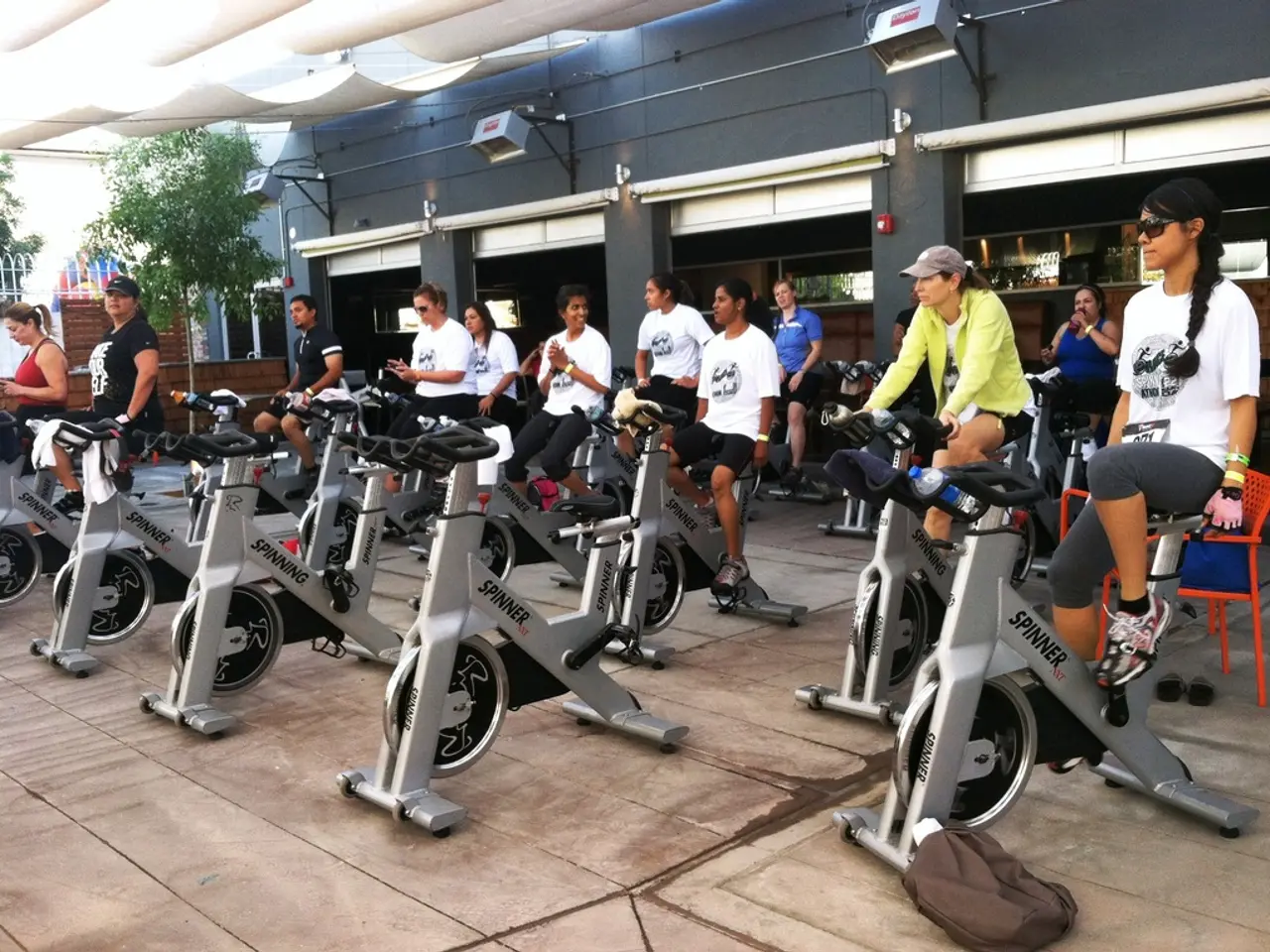Discovering the Keys to a Long Life: Insights from the 'Blue Zones' Regions
**Living Longer and Healthier in the Blue Zones: A Holistic Approach**
The concept of the Blue Zones, unique regions where centenarians thrive while maintaining good health, has captivated the world. These zones, including Ikaria in Greece, Okinawa in Japan, and Nicoya in Costa Rica, among others, have revealed secrets to longevity that extend beyond genetics.
One key factor is the integration of physical activity into daily life. Residents of these zones don't rely on structured workouts for exercise; instead, they walk, garden, or engage in community care as a natural part of their routines. This consistent, low-intensity movement supports lifelong physical health without the stress of gym sessions [1].
Another crucial aspect is the predominantly plant-based, nutrient-dense diets common in Blue Zones. Rich in vegetables, fruits, whole grains, legumes, nuts, and healthy fats like olive oil, these diets avoid processed foods, sugary drinks, and excessive dairy. Meat is consumed sparingly, usually only a few times per month [1][2][3][5]. This dietary approach contributes to lower rates of chronic disease and better cellular health.
Eating habits in Blue Zones also emphasise moderation. A practice particularly noted in Okinawa is eating until only about 80% full, known as *Hara hachi bu*, which supports better metabolism, reduced cellular damage, and longer healthspan [2][3].
Strong social connections and community involvement are also essential in Blue Zones. Residents maintain significant social ties, which provide emotional support, reduce stress, and foster mental well-being — all factors linked to healthier ageing and longevity [1][2].
Effective stress relief mechanisms and a sense of purpose or faith are also vital. These factors contribute to lower stress hormone levels, which are known to accelerate ageing processes [2]. In Loma Linda, USA, prayer and spending time in nature are practised for stress reduction, while in Nicoya, Costa Rica, community festivals and spending time with family are stress reduction techniques.
The diets in Blue Zones exclude ultra-processed foods and fast foods, which are linked to increased inflammation and chronic illnesses common in aging populations [3]. Instead, they consume plant-based proteins like beans, a cornerstone of centenarian diets.
The synergy of a nutrient-rich diet, physical activity, social integration, and stress management supports cellular repair mechanisms, maintains metabolic health, and fosters resilient mental and physical health. Together, these factors reduce the prevalence of chronic diseases such as heart disease, cancer, and diabetes in Blue Zones, enabling people to remain physically active and cognitively healthy into very old age [1][3].
In summary, longevity in Blue Zones arises not just from genetics but primarily from a holistic lifestyle emphasising natural movement, a plant-centric diet, moderated eating, strong social bonds, and effective stress management—all of which have been scientifically linked to reduced chronic disease and healthier ageing trajectories. By adopting these principles, we can all strive to live longer, healthier lives.
Cultivating a positive mindset and effective stress management techniques are crucial components of the Blue Zones lifestyle. In Sardinia, Italy, taking afternoon naps and spending time with loved ones is a common stress reduction technique. By embracing these principles, we can all contribute to a healthier, more vibrant future.
- The Blue Zones, like Ikaria in Greece and Okinawa in Japan, are regions where people live longer while maintaining good health, challenging the belief that longevity is solely genetic.
- Physical activity in Blue Zones integrates into daily life, with residents walking, gardening, or contributing to community care as part of their routines.
- The food consumed in Blue Zones is mostly plant-based, rich in vegetables, fruits, whole grains, legumes, nuts, and healthy fats like olive oil.
- Meat is eaten sparingly in Blue Zones, typically only a few times monthly.
- Eating moderately is a key habit in Blue Zones, with Okinawans practicing the technique of eating until about 80% full, known as Hara hachi bu.
- Strong social connections and community involvement are essential in Blue Zones, as they provide emotional support, reduce stress, and improve mental well-being.
- Effective stress relief mechanisms and a sense of purpose or faith are also vital in Blue Zones, contributing to lower stress hormone levels and slower aging.
- The diets in Blue Zones exclude ultra-processed and fast foods, which are linked to inflammation and chronic illnesses common in aging populations.
- Instead, Blue Zone diets emphasize plant-based proteins like beans.
- The synergy of a nutrient-rich diet, physical activity, social integration, and stress management supports cellular repair mechanisms, maintains metabolic health, and fosters resilient mental and physical health.
- By adopting the principles of the Blue Zones, such as natural movement, a plant-centric diet, moderated eating, strong social bonds, and effective stress management, we can strive to live longer, healthier lives.
- Cultivating a positive mindset and effective stress management techniques are crucial components of the Blue Zones lifestyle.
- In Sardinia, Italy, afternoon naps and spending time with loved ones are common stress reduction techniques in the Blue Zones.
- By embracing these principles, we can all contribute to a healthier, more vibrant future, including in aspects of our lives such as workplace-wellness, health-and-wellness, fitness-and-exercise, mental-health, mens-health, skin-care, therapies-and-treatments, nutritional needs, aging gracefully, women's health, parenting, medicare, cbd, fashion-and-beauty, food-and-drink, home-and-garden, relationships, pet care, travel, and sports.




